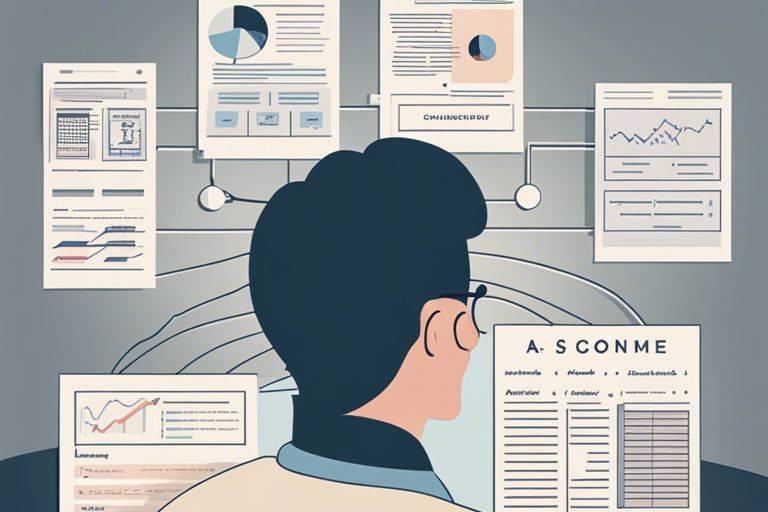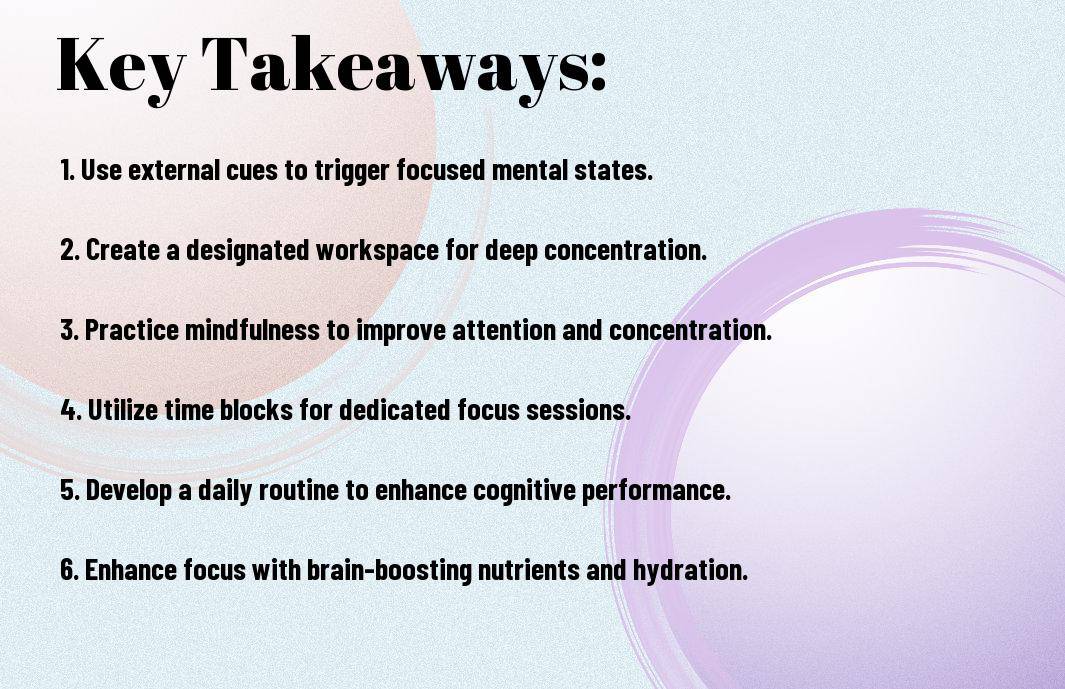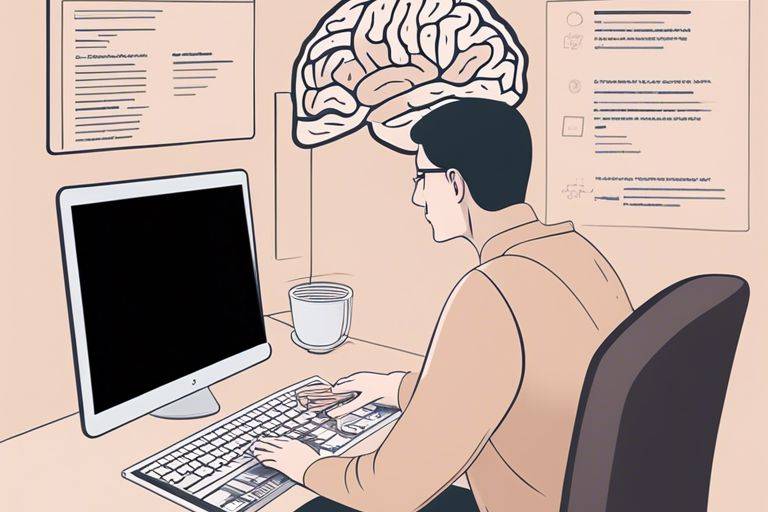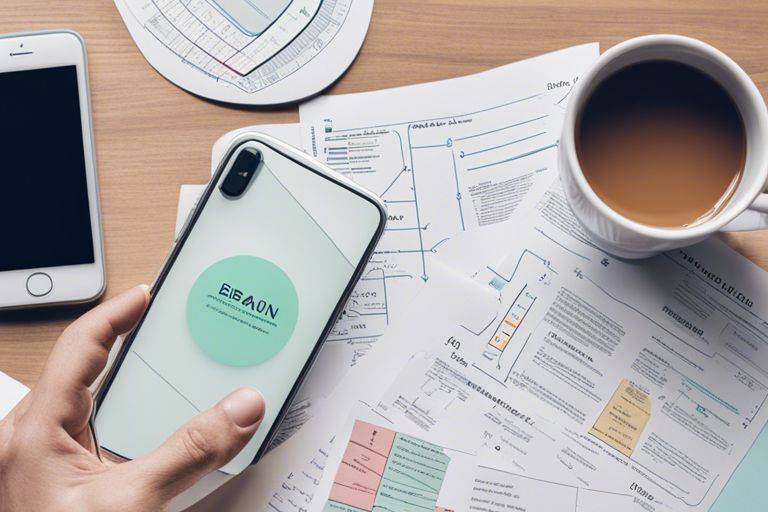
Newsletter Subscribe
Enter your email address below and subscribe to our newsletter

Enter your email address below and subscribe to our newsletter

Better Concentration! Have you ever struggled to stay focused? Techniques for enhancing concentration can make a significant difference in productivity and mental clarity. Creating a second brain to offload and organize information can improve your ability to retain knowledge and stay on task.
Through the implementation of strategies such as note-taking, mind mapping, and digital organization tools, you can develop a more efficient workflow and boost your cognitive abilities. Harness the power of your second brain to unlock greater levels of focus and achieve your goals with ease.

Now, if you’re looking to sharpen your focus and concentration skills, it’s important to have a good understanding of how concentration works. For helpful tips on improving your concentration, check out this article on How to Improve Your Focus and Concentration Skills.
With focus, the brain is vitally filtering out unnecessary information to hone in on the task at hand. This process involves the prefrontal cortex, which helps with decision-making and goal-setting, as well as the parietal cortex, which processes sensory information. Understanding this interplay can help you leverage your brain’s natural abilities to boost your concentration levels effectively.
One common barrier to concentration is multitasking, which can divide your attention and lower the quality of your work. Another distraction is external noise or interruptions, which can disrupt your flow and make it harder to maintain focus. Understanding these common distractions and barriers can help you identify them and take steps to minimize their impact proactively.
Now, if you’re looking to sharpen your focus and concentration skills, it’s important to have a good understanding of how concentration works. For helpful tips on improving your concentration, check out this article on How to Improve Your Focus and Concentration Skills.
With focus, the brain is vitally filtering out unnecessary information to hone in on the task at hand. This process involves the prefrontal cortex, which helps with decision-making and goal-setting, as well as the parietal cortex, which processes sensory information. Understanding this interplay can help you leverage your brain’s natural abilities to boost your concentration levels effectively.
One common barrier to concentration is multitasking, which can divide your attention and lower the quality of your work. Another distraction is external noise or interruptions, which can disrupt your flow and make it harder to maintain focus. Understanding these common distractions and barriers can help you identify them and take steps to minimize their impact proactively.
Despite the distractions that surround us every day, there are ways to improve mental focus and concentration. If you’re looking to enhance your ability to concentrate, check out these 7 Tips for Becoming More Mentally Focused.
An vital step in building a strong foundation for your second brain is decluttering your mental space. Just as a cluttered physical environment can inhibit your ability to focus, a cluttered mind can lead to mental overload and decreased productivity. Take some time to organize your thoughts, prioritize tasks, and remove any unnecessary mental baggage. Utilize tools like journaling, mind mapping, or meditation to clear out the mental clutter and create a more focused mindset.
For optimal concentration, setting the stage for enhanced focus is key. Create a conducive environment for deep work by eliminating distractions, optimizing your workspace, and establishing a routine that signals your brain it’s time to focus. By dedicating specific time blocks to concentrate on important tasks, you can train your brain to enter a state of heightened focus and productivity.
Enhanced focus not only improves your efficiency and performance but also reduces stress and enhances your overall well-being. By implementing strategies to declutter your mental space and setting the stage for enhanced focus, you can sharpen your concentration skills and build a solid foundation for your second brain.

Keep your mind sharp and focused by incorporating core second brain techniques into your daily routine. These techniques are designed to enhance your cognition and memory, ultimately leading to better concentration and productivity.
On your journey to sharpen your focus, mind mapping can be a powerful tool. Mind mapping is a visual technique that helps you organize and connect ideas in a structured way. By creating a mind map, you can visually see how different pieces of information are related, leading to a clearer understanding of complex concepts. This technique can be especially helpful when brainstorming, outlining projects, or studying for exams. So, grab a pen and paper or use digital tools to start mind mapping your way to enhanced clarity and focus!
To enhance your second brain capabilities, consider using note-taking apps as your external brain. These apps allow you to quickly jot down ideas, organize information, and access your notes from multiple devices. With features like search functionality, tags, and cloud syncing, note-taking apps can help you capture and retain important details efficiently. Whether you prefer apps like Evernote, Notion, or OneNote, finding the right note-taking tool can significantly boost your productivity and concentration levels.
Mind mapping and utilizing note-taking apps are just a few of the core second brain techniques that can transform your ability to concentrate and retain information. Incorporating these practices into your daily routine can lead to improved focus, enhanced memory, and increased productivity levels. So, start implementing these techniques today and sharpen your focus for a more efficient and effective lifestyle!
After implementing a second brain system, it’s important to establish organizational strategies to enhance its effectiveness. These strategies will help you manage and retrieve information efficiently, leading to better concentration and productivity.
An effective way to organize your second brain is by categorizing information for easy retrieval. Create different folders or tags based on topics, projects, or priorities. This structure will help you quickly locate specific information when needed, saving you valuable time and mental energy.
Organizational techniques extend beyond just storing information. Prioritizing tasks is crucial for maximizing productivity. Make use of tools such as to-do lists, calendars, or task management apps to assign levels of importance to each task. By focusing on high-priority tasks first, you can ensure that you are making progress on the most critical aspects of your work.
Plus, by utilizing prioritization techniques, you can avoid feeling overwhelmed by a long list of tasks. Breaking them down into smaller, manageable chunks allows you to tackle them systematically, leading to a more organized and productive workflow.
Not only can technology sometimes be a distraction, it can also be a powerful tool to enhance your concentration and boost productivity. By leveraging the right digital tools, you can simplify your thought process and create a more efficient second brain to support your cognitive abilities.
Boost your concentration with digital tools that help streamline your thought process. Apps like Evernote, Notion, and Roam Research are designed to capture your ideas, organize your thoughts, and create connections between them. These tools allow you to offload information from your mind and onto a digital platform, freeing up mental space for deeper focus and creative thinking.
Your second brain is a personalized system that works best when tailored to your unique needs and preferences. By customizing the technology you use to support your second brain, you can create a seamless workflow that enhances your concentration and productivity. Whether it’s setting up specific templates in your note-taking app or creating shortcuts for quick access to your most used tools, customizing your tech can help you stay organized and focused.
Serve your second brain by optimizing your digital tools to work in harmony with your natural thought process. Experiment with different features and configurations to find what works best for you. Do not forget, the goal is to enhance your concentration and boost your productivity, so don’t be afraid to adapt and refine your digital setup as needed.

Unlike our primary brain responsible for conscious thoughts, the second brain refers to the body’s enteric nervous system, which is linked to our gut and plays a significant role in our overall well-being. By integrating mindfulness practices with second brain techniques, we can enhance our focus, concentration, and cognitive abilities.
To cultivate better concentration, incorporating meditation into your daily routine can be transformative. Mindful meditation helps create mental clarity and awareness, allowing you to observe your thoughts without judgment. This practice strengthens neural connections in the brain, improving your ability to concentrate and stay focused on tasks at hand.
Focus on your breath to anchor yourself in the present moment. Deep breathing exercises can help calm the mind, reduce stress, and enhance concentration. By engaging in diaphragmatic breathing and rhythmic patterns, you can increase oxygen flow to the brain, promoting clarity, alertness, and mental sharpness.
Plus, incorporating breathwork techniques can be done anytime, anywhere, making it a convenient tool to boost focus and productivity throughout the day. Take a few moments to practice deep breathing whenever you feel overwhelmed or need a mental reset.
All of us strive for better focus and concentration in our daily lives. To achieve this, it’s important to develop a strong second brain – a mental repository where you can store and retrieve information efficiently. One way to enhance your concentration is by incorporating tips to improve concentration into your daily routine.
Nurturing your second brain through daily routines is imperative for long-term benefits. Engaging in activities like journaling, meditation, and regular exercise can help strengthen neural pathways and improve cognitive function. By consistently challenging your brain with new information and experiences, you create a robust mental repository that enhances your ability to focus and concentrate.
Your second brain is a dynamic entity that thrives on continuous learning and growth. Embracing life-long learning not only expands your knowledge base but also enhances the capacity of your second brain to absorb and process information more effectively. Whether it’s picking up a new skill, exploring a different hobby, or delving into a new subject area, every learning opportunity contributes to the evolution of your second brain.
Routines that prioritize mental challenges and intellectual stimulation play a crucial role in nurturing a healthy and adaptable second brain. Investing time and effort into activities that promote cognitive agility and memory retention can significantly improve your overall cognitive function and concentration levels in the long run.
A: Sharpening focus is crucial for improved productivity, better decision-making, and enhanced overall mental clarity and performance.
A: Second brain techniques involve utilizing tools such as note-taking, mind mapping, and organization methods to enhance cognitive abilities and concentration.
A: Note-taking helps engage with information actively, enhances comprehension, and reinforces memory retention, thereby improving focus during tasks.
A: Mind mapping is a visual technique that organizes information hierarchically, stimulating creativity, aiding in problem-solving, and boosting focus by providing a clear structure.
A: Routines create structure and predictability, reducing decision fatigue and mental clutter, allowing for better focus and attention on tasks at hand.
A: Mindfulness practices enhance self-awareness, regulate attention, and reduce distractions, fostering improved concentration when implementing second brain strategies.
A: Taking regular breaks during tasks rejuvenates the mind, prevents burnout, and maintains cognitive stamina, ultimately leading to sustained focus and better concentration levels.